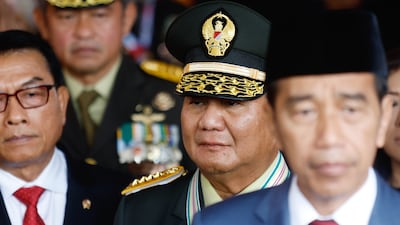As the new multipolar world emerges, there has been much talk about who will lead a Global South increasingly confident of the weight and place it should have on the international stage.
Many have framed this as a contest between China, with its expansive Belt and Road Initiative to which about 150 countries are formally affiliated, and India, which has been positioning itself both as an alternative and as more of a bridge between “the West and the rest”.
After current Defence Minister Prabowo Subianto won Indonesia’s presidential election in February, however, the Indian economist Mihir Sharma made an alternative case.
“The Global South needs a leader. Indonesia should apply”, was the title of his essay, which detailed how incumbent President Joko Widodo had made sure that more money from its mineral wealth stayed in the country, by persuading investors to build processing and manufacturing facilities there. China’s investment in Indonesia – including in coal – rose massively under Mr Widodo, while he also secured a promise of $20 billion in “just transition” funds from western nations to move the country towards renewable energy.
The country also maintains its “independent and active” foreign policy of non-alignment with superpowers nor being bound by military pacts.
Mr Prabowo was the candidate of continuity, so expect more of the same when he formally takes over in October; and he has spoken in the past of his ambition for his country to lead the Global South. The peace initiative for Ukraine that he proposed at the Shangri-La Dialogue in Singapore last June was a sign of the role he believes his country can and should play.
But in the light of recent events, I suggest he be joined by the leader of neighbouring country – Malaysian Prime Minister Anwar Ibrahim.

Mr Anwar has been pursuing a similar path of balancing. Chinese companies have been “flooding” into the country, partly for reasons of supply chain diversification, while the US Intel Corporation is spending $7 billion on new factories in Malaysia, which led the market for American semiconductor imports in 2023 with a 20 per cent share. In terms of foreign policy, he has been actively focusing on the Association of South-East Asian Nations (Asean) – which Malaysia will chair next year – and the Middle East, and he has kept determinedly to the country’s tradition of being “friends with all”, regardless of their ideology.
But it has been his outspokenness on issues that matter to the Global South and his insistence that they should not have to bend to the views of the West that have been winning him plaudits. In a joint news conference with German Chancellor Olaf Scholz in Berlin a little more than a week ago, Mr Anwar did not hold back after Mr Scholz defended Israel’s actions in Gaza.
“You cannot find a solution by being so one-sided and erase 60 years of atrocities,” he said. “Why this hypocrisy? Why this selective and ambivalent attitude towards one race and another? Is it because they are coloured or a different religion? I cannot accept the fact that when you discuss issues, we’re only confined to one particular incident and one victim, forgetting the thousands and thousands of victims from the Nakba of 1947-1948.”
The clip went viral, leading to comments such as this from the British-American broadcaster Mehdi Hasan: “We have reached a point where the Prime Minister of Malaysia now speaks for the majority of the world’s people and not a European or western leader.”
At the beginning of the month, Mr Anwar was in Melbourne for a summit between Australia and Asean. In a news conference with Australian Prime Minister Anthony Albanese, he hit back at western pressure for countries to weaken ties with China.
Malaysia was an important friend to the US, Europe and Australia, he said, but “they should not preclude us from being friendly to one of our important neighbours, precisely China. If they have problems with China, they should not impose it upon us. We do not have a problem with China.”
Similarly, US President Joe Biden and Secretary of State Antony Blinken looked on stony-faced as Mr Anwar contrasted the treatment of Ukraine and Palestine at the Asia-Pacific Economic Co-operation meeting last November in San Francisco. “Stop the atrocities” in Gaza, he urged, once again berating his hosts.
Mr Anwar is not anti-American, and neither is Mr Prabowo. Former US vice president Al Gore and former deputy defence secretary Paul Wolfowitz were two of Mr Anwar’s most ardent supporters, while Mr Prabowo attended the American School in London as a teenager and underwent commando training at Fort Benning in the US in 1985.
But both represent a Global South that is demanding its centrality and that its concerns be acknowledged. Trade should be with everyone, and the emphasis should be on peace, not insisting that one nation subscribe to the political norms of another.
Mr Prabowo, a former special forces general, and Mr Anwar, who spent many years in jail, may not seem the most obvious pairing. But both saw themselves as dauphins back in the 1990s, spent years out of power, and finally reached the top jobs after about two decades. Both have had to temper some of their stands in order to achieve that goal, and both are fluent performers on international media.
Next year is the 70th anniversary of the Bandung Conference, the forerunner of the Non-Aligned Movement. The latter’s aim was to keep much of what we refer to as the Global South today out of the Cold War.
It would be a fitting tribute if in 2025 the leaders of Indonesia, host of that conference, and Malaysia, Asean’s chair, were to mark that year by uniting to call for a more just world – one in which the West does not turn a blind eye to “atrocities” by its allies, and one in which the Global South is finally treated as an equal partner.

























